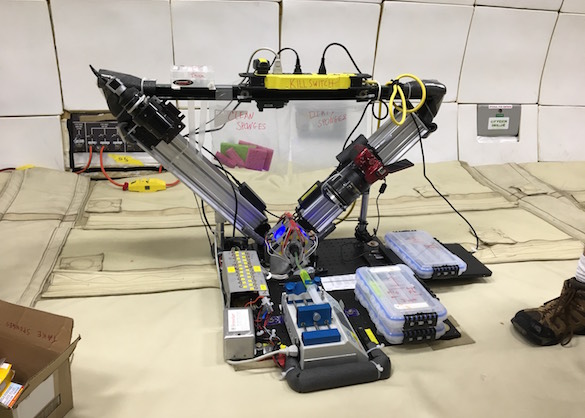T0183-PProtein-Drop Pinning in Microgravity
Protein-Drop Pinning in Microgravity
PI: Amir Hirsa, Rensselaer Polytechnic Institute
PI: Amir Hirsa, Rensselaer Polytechnic Institute

Technology Areas (?)
- TA06 Human Health, Life Support and Habitation Systems
Technology Maturation
In February 2016, the first parabolic flights successfully demonstrated pinning of water drops at 10 mm scale. These new flights seek to study drop formation using protein solutions at a scale of 15 mm, in a progression toward the 25 mm scale of the RSD module aboard the ISS.
Technology Details
-
Selection DateREDDI-F1-16B (Jan 2017)
-
Program StatusCompleted
- 1 Parabolic
Successful FOP Flights
Development Team
-
PIAmir Hirsa
-
Organization
-
SponsorNASA
-
More Information

